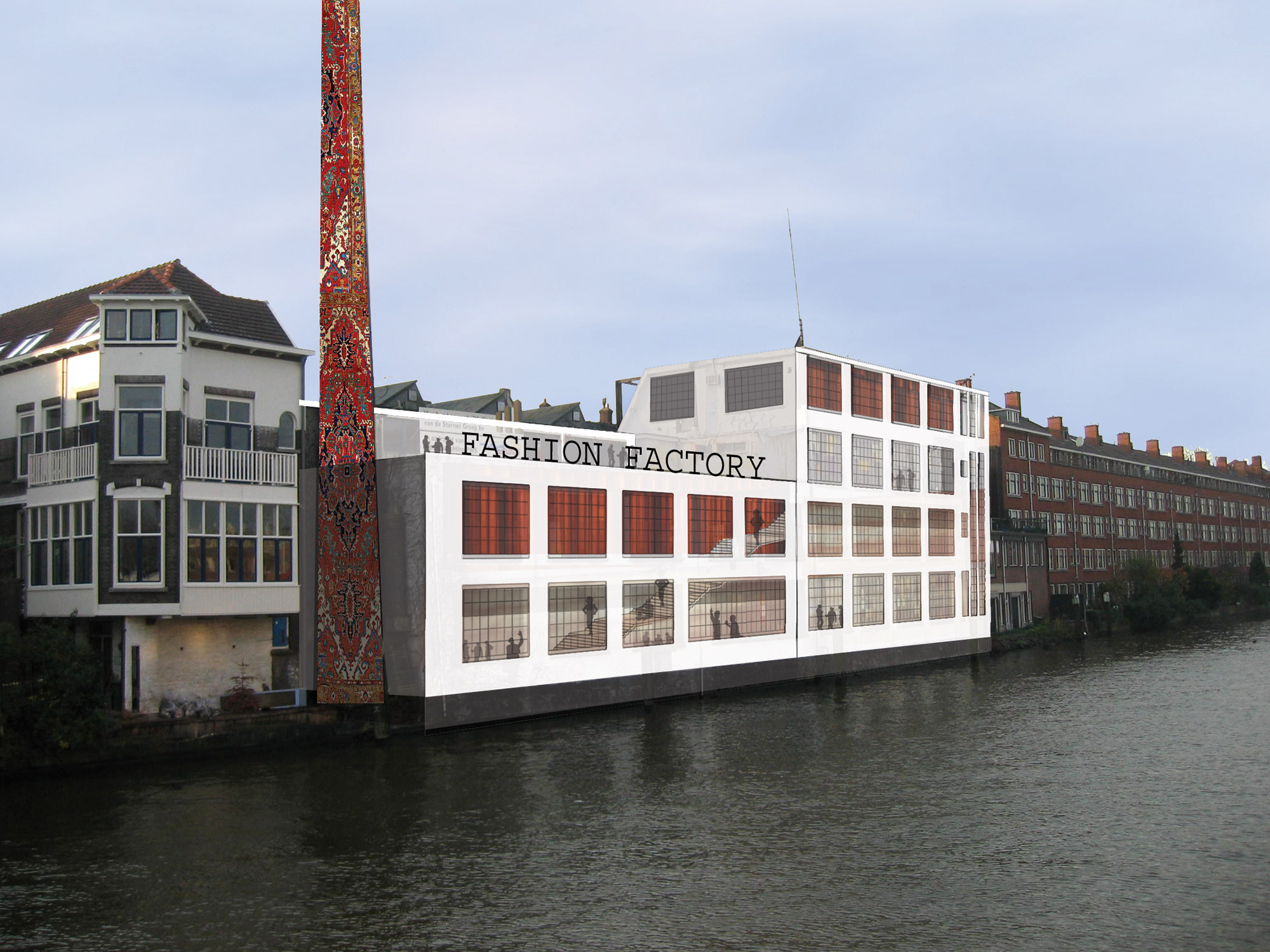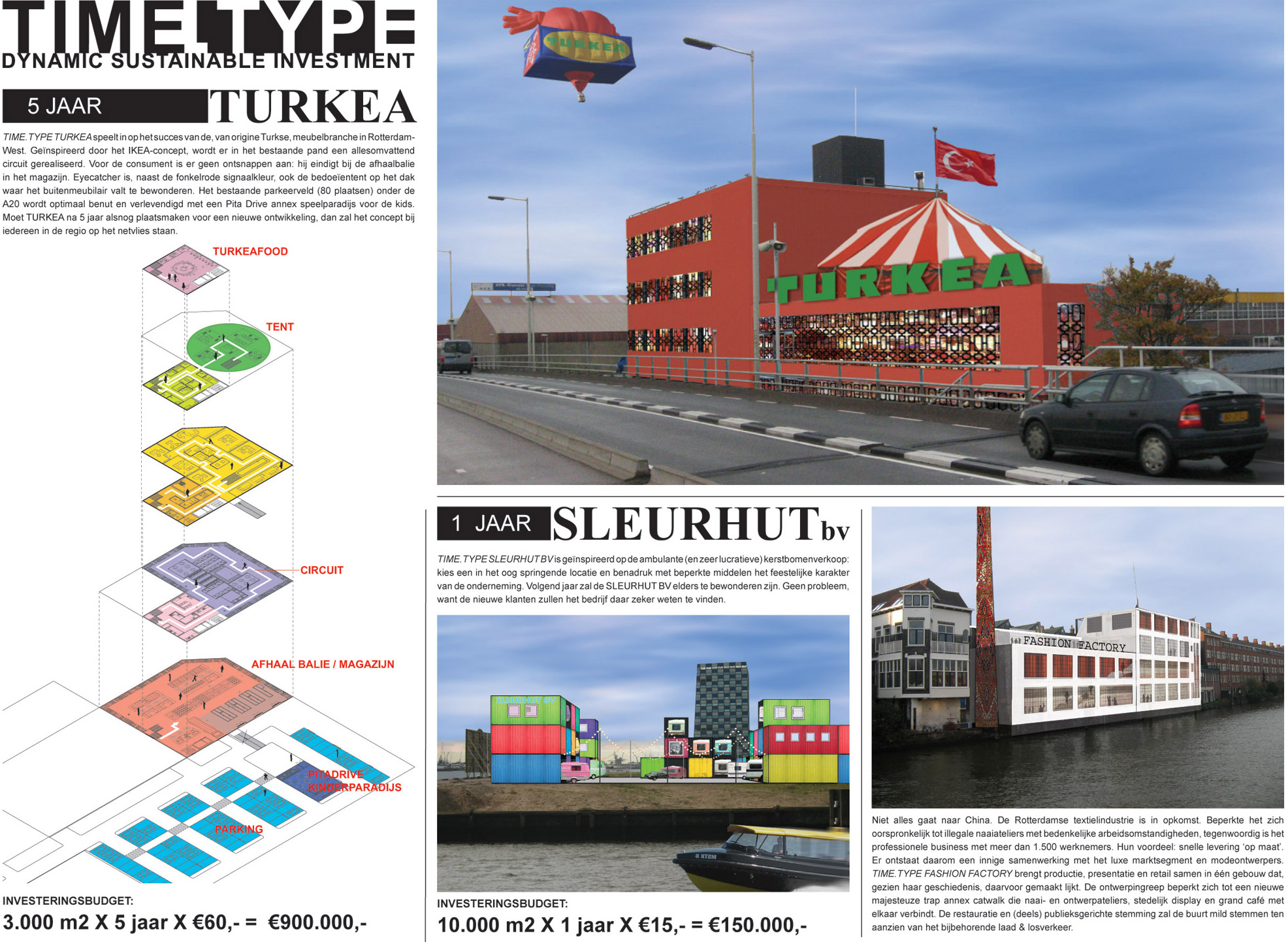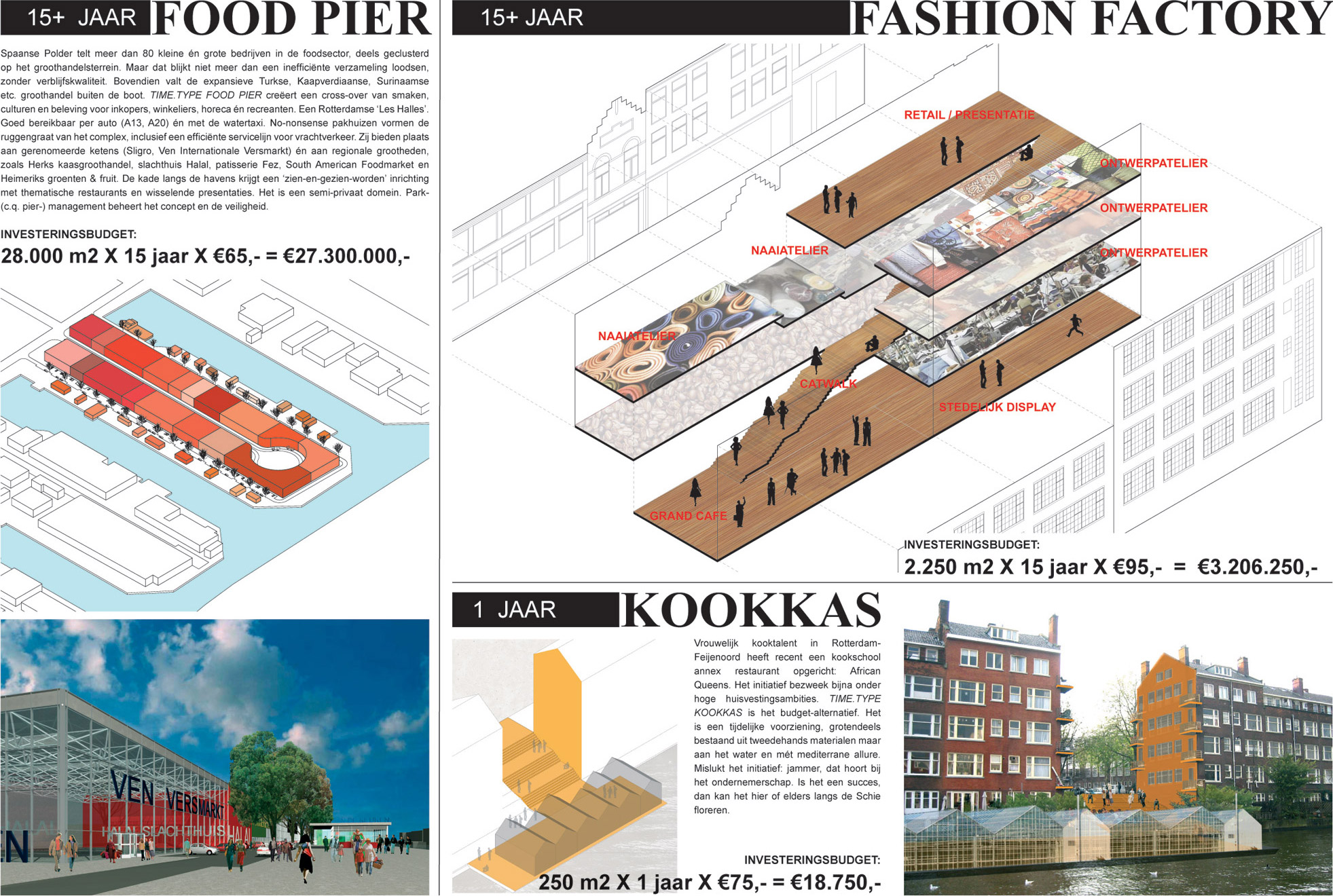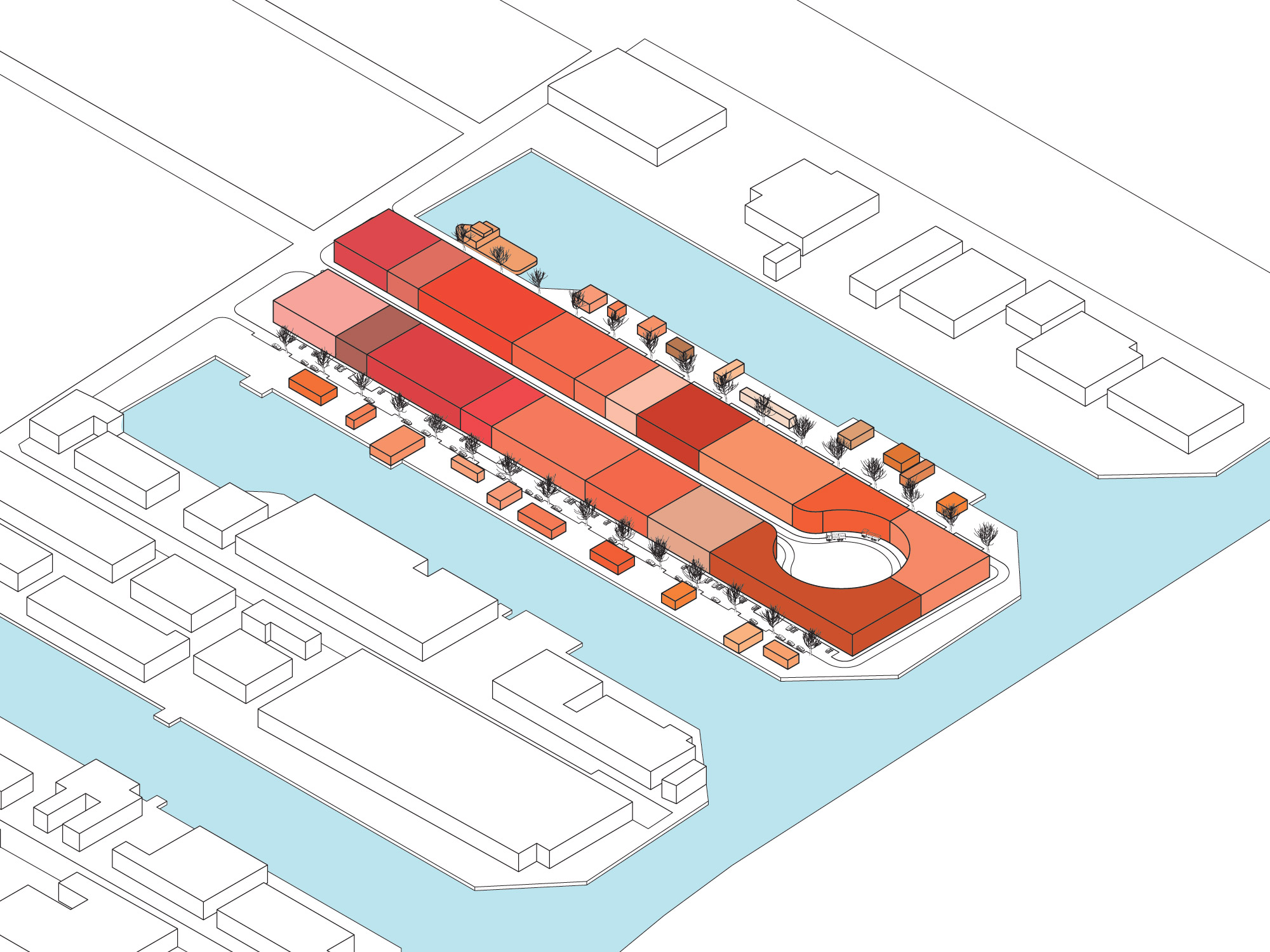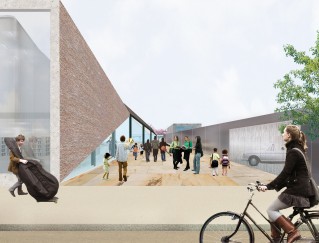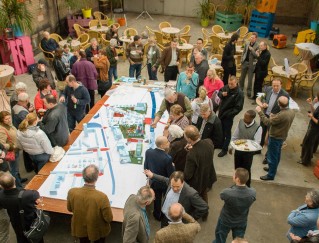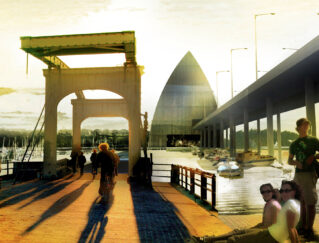Time.type (dynamic sustainable development) received an honorable mention in the competition for the development for inner city business areas organized by the Dutch ministry of economic affairs (2006). The ugliness of the average industrial area provokes social resistance. High demands related to architecture & sustainability become a heavy burden for both starters and ‘survivors’. This is anti-social. TIME.TYPE therefore defines differences in depreciation and investment levels by location, so that ‘nice’ not always has to be expensive and everlasting. In this project we argued that time should be and equally important aspect of transformation of the city. From temporary use (1 year) to more long-term initiatives (15 years) we investigated a wide range of possibilities to integrate business activity within the existing city fabric. When time is an aspect, investment (financial and human) becomes clearer and the step to start is partly eliminated.
Team: Marieke van Hensbergen, Johan De Wachter
Collaboration: Andries Geerse
Client: Dutch ministry of economic affairs
Location: Rotterdam, NL
Time.type (dynamic sustainable development) received an honorable mention in the competition for the development for inner city business areas organized by the Dutch ministry of economic affairs (2006). The ugliness of the average industrial area provokes social resistance. High demands related to architecture & sustainability become a heavy burden for both starters and ‘survivors’. This is anti-social. TIME.TYPE therefore defines differences in depreciation and investment levels by location, so that ‘nice’ not always has to be expensive and everlasting. In this project we argued that time should be and equally important aspect of transformation of the city. From temporary use (1 year) to more long-term initiatives (15 years) we investigated a wide range of possibilities to integrate business activity within the existing city fabric. When time is an aspect, investment (financial and human) becomes clearer and the step to start is partly eliminated.
Team: Marieke van Hensbergen, Johan De Wachter
Collaboration: Andries Geerse
Client: Dutch ministry of economic affairs
Location: Rotterdam, NL
Time.type (dynamic sustainable development) received an honorable mention in the competition for the development for inner city business areas organized by the Dutch ministry of economic affairs (2006). The ugliness of the average industrial area provokes social resistance. High demands related to architecture & sustainability become a heavy burden for both starters and ‘survivors’. This is anti-social. TIME.TYPE therefore defines differences in depreciation and investment levels by location, so that ‘nice’ not always has to be expensive and everlasting. In this project we argued that time should be and equally important aspect of transformation of the city. From temporary use (1 year) to more long-term initiatives (15 years) we investigated a wide range of possibilities to integrate business activity within the existing city fabric. When time is an aspect, investment (financial and human) becomes clearer and the step to start is partly eliminated.
Team: Marieke van Hensbergen, Johan De Wachter
Collaboration: Andries Geerse
Client: Dutch ministry of economic affairs
Location: Rotterdam, NL

